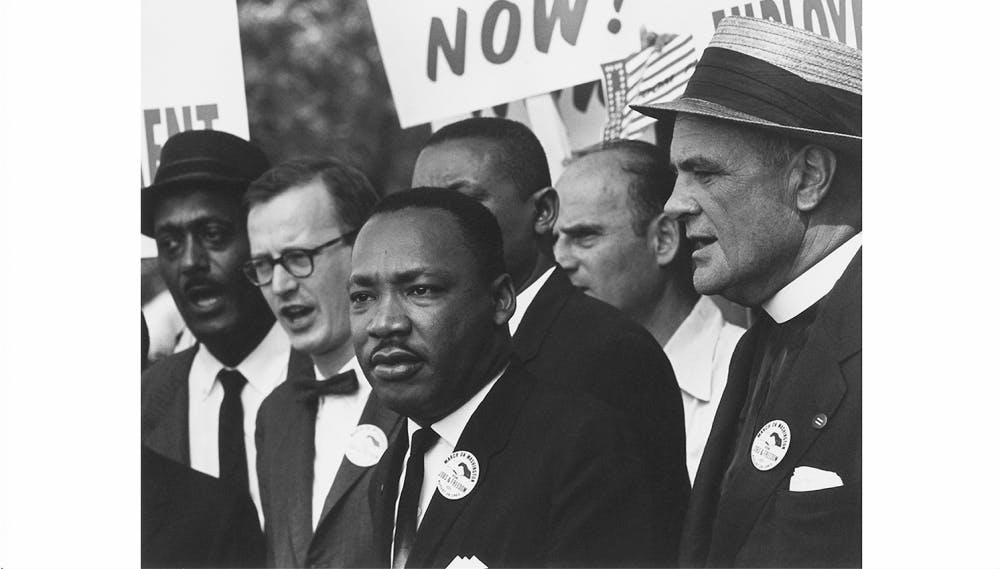I Am Not Your Negro starts with archival footage of the Dick Cavett Show in 1968, featuring Cavett himself asking writer James Baldwin whether things are improving for the black man in America. Without missing a beat, Baldwin opines, “It's not a question of what happens to the Negro here…the real question is what’s going to happen to this country.” A short scrap of footage highlights how eerily similar protest signs from 1960s Birmingham are similar to those in 2014 Ferguson. The film explicitly shows that Baldwin’s concerns are still valid today.
Director Raoul Peck must have known he was creating something special with this Oscar–nominated documentary, which brought Baldwin’s unfinished manuscript, Remember This House, to life. In this work, Baldwin intended to reflect on the deaths of three of his friends: Malcolm X, Medgar Evers and Martin Luther King, Jr., all leaders of the Civil Rights movement and all assassinated before they turned 40. Baldwin’s observations, delivered with remarkable charisma, feel so salient that they could have been delivered at a contemporary Black Lives Matter demonstration.
As a window into Baldwin’s remarkably perceptive mind, this documentary is spectacular. Often overshadowed by the more prominent Civil Rights leaders, Baldwin and his philosophies are rarely explored in the classroom or in our cultural conversation as a whole. After spending just 90 minutes with this documentary, you gain a peak into his worldview—the careful mixture of realism, optimism, sympathy and incisive wit feels like a cool antidote for the vitriolic political climate of today.
The documentary jumps effortlessly throughout time, painting a visceral portrait of racial America. Footage shows white policemen relentlessly beating black men in suits and ties. A scene from a 1960s rom–com starring a rosy–cheeked Doris Day immediately cuts to a shot of a lynched black woman. Peck interweaves this footage with pieces of Baldwin’s manuscript (narrated by Samuel L. Jackson—nearly unrecognizable without his booming, dynamic voice) to great effect. There is no end point to this documentary, no eventual triumph; instead, Peck cultivates the sense of weariness that Baldwin undoubtedly felt as a black gay man living through the 1960s. As the film draws to a reflective close, Baldwin confronts white America with an ultimatum: in order to fix the racial problem in this country, we must first figure out why the prejudice was necessary in the first place. It appears that, more than 40 years later, America still can’t come up with a good answer.
Baldwin’s consistent presence in the film goads the audience to action. His persistence helped to get us where we are now, and there is still much work to be done. Peck describes discovering the works of Baldwin when he was 15 years old—how they gave him the words he needed to articulate his own feelings. With this documentary, Peck is amplifying Baldwin’s voice to millions of people around the world so that his words will serve to galvanize them, giving those who are voiceless the will to speak and fight.

